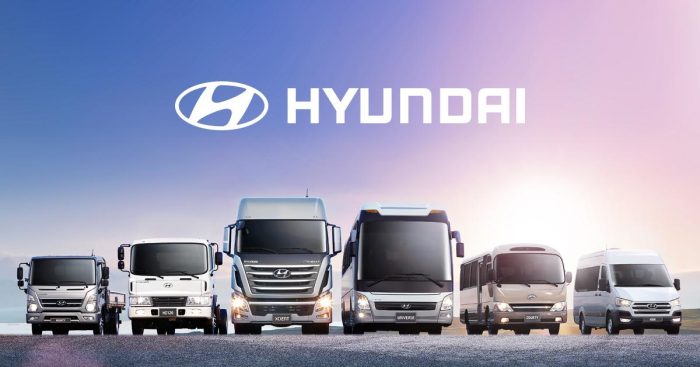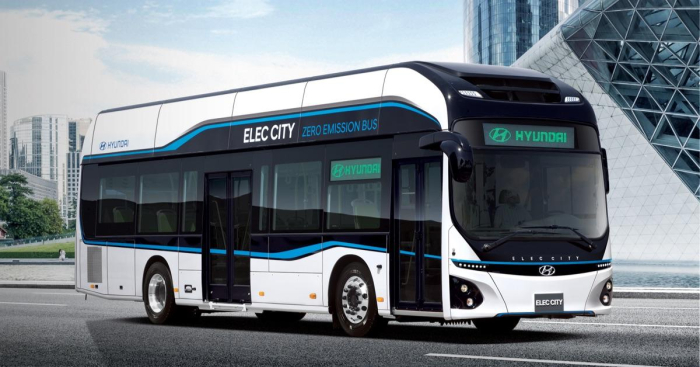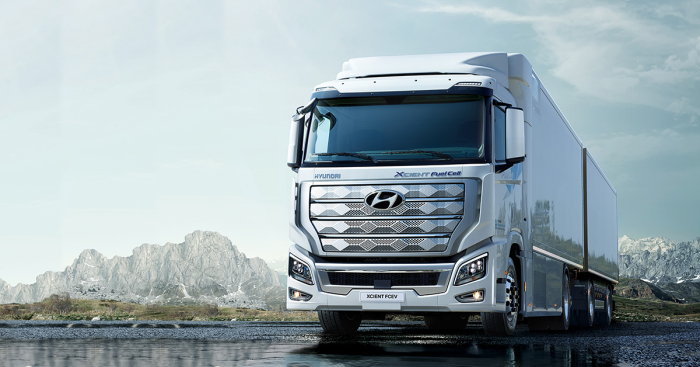Hyundai Motor group
Hyundai Motor sets recovery plan for commercial vehicles
By Apr 05, 2021 (Gmt+09:00)
3
Min read
Most Read
LG Chem to sell water filter business to Glenwood PE for $692 million


KT&G eyes overseas M&A after rejecting activist fund's offer


Mirae Asset to be named Korea Post’s core real estate fund operator


StockX in merger talks with Naver’s online reseller Kream


Meritz backs half of ex-manager’s $210 mn hedge fund



Hyundai Motor Co. has devised ambitious plans for this year to rescue its declining commercial vehicle segment. The company will undergo organizational restructuring, launch new eco-friendly models and expand in a number of key regions to meet its annual sales target.
According to industry sources on Apr. 4, Hyundai Motor has raised this year’s annual target for commercial vehicles in domestic and overseas markets by 34.4%, set at 77,000 units versus last year’s 57,271 units.
The focus is on the overseas market, in which the company expects 48,500 units to be sold this year, up more than 50% from 30,202 units in 2020.
Unlike its thriving passenger vehicle business, which set new sales records in the US in the first quarter, Hyundai Motor’s commercial vehicle business has been in a declining trend in recent years.
It sold 101,999 units in 2016 globally, whereas the figure went down to 73,162 units in 2018 and to 57,271 units in 2020. The segment was heavily impacted by the pandemic last year, causing partial shutdowns of the company’s commercial vehicle factory in Jeonju, South Korea.
The slowdown in sales is still an ongoing issue for the company, which has again halted the Jeonju factory’s production lines for express buses and H350 vans.
“If Hyundai Motor fails to recover commercial vehicle sales this year, its position in the global market will be weakened to a large degree. That’s why the newly appointed co-CEO Chang Jae-hoon will be directly leading the overseas operation of its commercial vehicle business,” said an industry source.
Chang was newly appointed as the co-president and co-CEO of Hyundai Motor last December, and he also concurrently holds the position of the head of Commercial Vehicle Business Division.
HYUNDAI MOTOR’S MASTER PLAN FOR RECOVERY
The company will undergo an organizational restructuring as the first step of the recovery plan.
In addition to appointing a CEO-level as the company’s commercial vehicle business head, the division has become more streamlined with the transfer of domestic sales part to Domestic Business Division.
Under the new structure, the Commercial Vehicle Business Division will only focus on overseas sales, product development and marketing of commercial vehicles, while the Domestic Business Division will be responsible for domestic sales of commercial vehicles based on the division’s powerful network in the domestic passenger vehicle segment.
Second, the company will strengthen regional presence in Middle East and Africa (MEA) as well as in China. It raised commercial vehicle sales target in the MEA region by 92.3%, at 8,900 units this year versus 4,628 units sold in 2020. The company aims to take more than 5% share in the segment in the MEA region.
To this end, Hyundai Motor will invest more in marketing in the region and will start operating its assembly plant in Algeria as well.
The target figure for the Chinese market has also increased by 54.5%, set at 22,000 units this year compared to 14,239 units sold in 2020. The company said it will also be launching a model specifically tailored to the country’s needs.

The company’s competitive edge in eco-friendly vehicles is another growth driver.
A new model of the electric bus Elec City will be launched this year and its hydrogen fuel cell electric trucks will start mass production.
Hyundai Motor has started producing its hydrogen fuel cell electric truck Xcient Fuel Cell last year, and exported 50 units to a Swiss company.

Earlier this year in March during the annual shareholder meeting, the company highlighted the commercial vehicle business recovery as one of the key tasks for 2021 along with growth in China and expansion of its SUV portfolio.
“We will improve profitability by revisiting our current business areas and at the same time prepare for future competition by strengthening our electric vehicle lineup,” said Hyundai Motor co-CEO Ha Eon-tae at the meeting.
Write to Byung-Uk Do at dodo@hankyung.com
Daniel Cho edited this article.
More to Read
-
 Premium brandHyundai Motor to launch Genesis in China, posts record US sales
Premium brandHyundai Motor to launch Genesis in China, posts record US salesApr 02, 2021 (Gmt+09:00)
3 Min read -
 Factory suspensionHyundai Motor to halt plant for a week; Kona, IONIQ5 affected
Factory suspensionHyundai Motor to halt plant for a week; Kona, IONIQ5 affectedMar 29, 2021 (Gmt+09:00)
2 Min read -
 Future mobilityHyundai Motor invests in Clearpath Robotics in push for future mobility
Future mobilityHyundai Motor invests in Clearpath Robotics in push for future mobilityMar 17, 2021 (Gmt+09:00)
2 Min read
Comment 0
LOG IN


